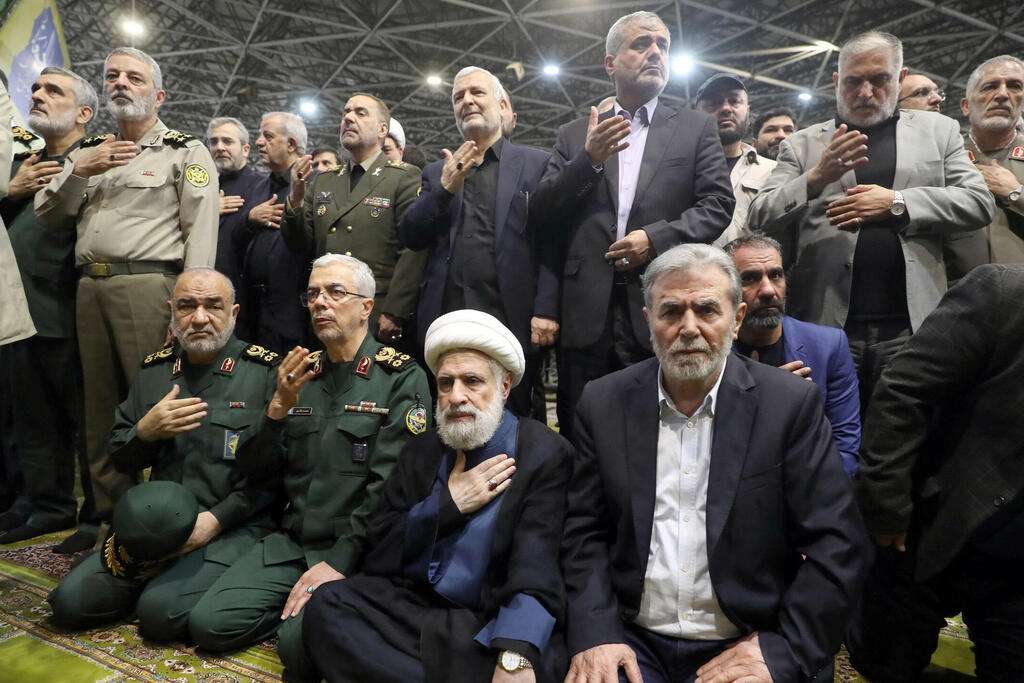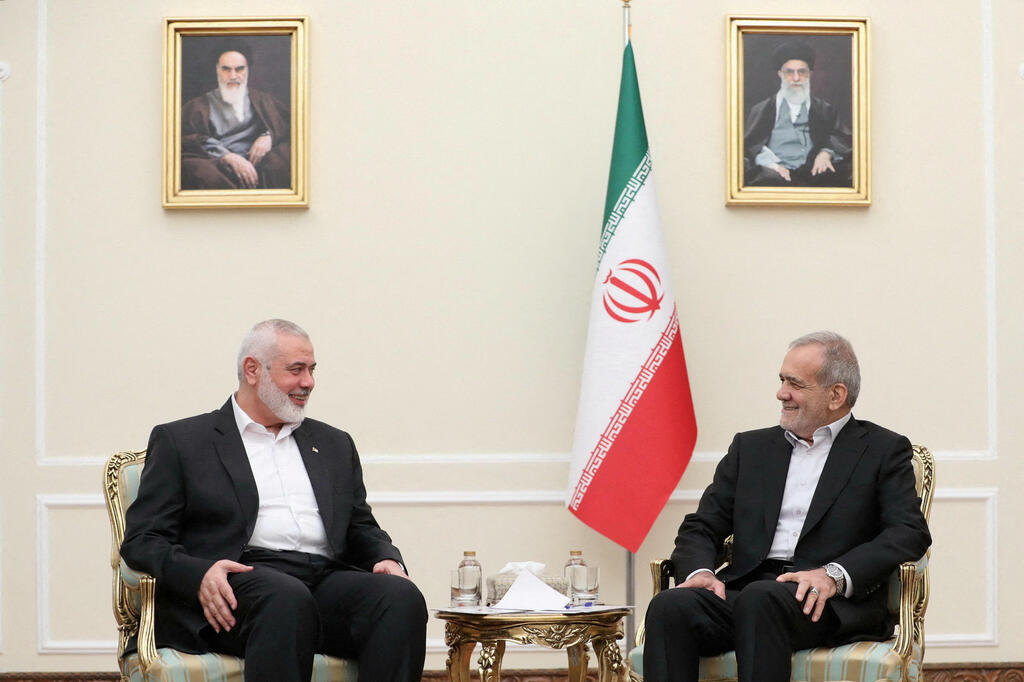Getting your Trinity Audio player ready...
Even after Ismail Haniyeh, the Hamas political bureau chief, was buried in Qatar, senior Iranian officials continue to threaten Israel, promising a direct and painful response to his assassination in Tehran. Iran's Supreme Leader Ali Khamenei said that the "criminal and terrorist Zionist regime" prepared the ground for severe punishment.
The threats coming from Tehran should not surprise anyone. Immediately after the Iranian attack against Israel on April 13, the commander of Iran's Revolutionary Guard Corps, Hossein Salami, said Iran had adopted a new equation vis-à-vis Israel and that any Israeli attack "on Iran's interests, its officials or its citizens" would be met with a direct attack on Israel.
Although this does not mean that any Israeli action against an Iranian target will necessarily lead to an Iranian attack on Israel's territory, the meaning of the new Iranian equation is the addition of another option to the Iranian toolkit in its fight against Israel. Iran will not only employ terrorism against Israeli and Jewish targets abroad through emissaries, or retaliation in cyberspace or on sea but resort to a direct military attack from its territory.
Meanwhile, Haniyeh's assassination sparked the Iranian debate over a response to an attack in Iran. An Iranian news site, associated with pragmatic conservatives, suggested that Iran's revenge should be focused on the elimination of the Israeli network of agents in Iran.
An article on the website claimed the greatest revenge on Israel would be through "cutting off the arms of the terrorist octopus" that Israel has established on Iranian territory. The article was published amid reports of several arrests of suspects, including senior intelligence officers under suspicion of involvement in the assassination.
Meanwhile, a commentator in an Iranian reformist newspaper called for a response in a way that would not endanger Iran and without falling into Netanyahu's "trap" after he failed in Gaza, by dragging the Islamic Republic into an all-out military conflict. According to the commentator, Iran should improve its defense, security, and intelligence capabilities. He also said Iran should solve its economic and social challenges to deal better with the Israeli threat.
Debate at the top of Iran's Revolutionary Guard
The pragmatic Iranian President Masoud Pezeshkian's government will shape the debate on Iran's response following his victory in the presidential elections. This debate expresses two approaches that are not completely opposed but are quite different.
On the other hand, the pragmatic camp, including the new president, some of his advisers, and former foreign minister Mohammad Javad Zarif represents a different approach. In their view, Iran should respond to the Israeli action but should focus on restoring its capabilities and deterrence through diplomacy, stabilizing the economy, solving the regime's legitimacy crisis, improving its international standing, and addressing the intelligence issue.
On the other hand, the pragmatic camp, including the new president, some of his advisers, and former Foreign minister Mohammad Javad Zarif, represents a different approach. In their view, Iran should respond to the Israeli action but should focus on restoring its capabilities and deterrence through diplomacy, stabilizing the economy, solving the regime's legitimacy crisis, improving its international standing, and addressing intelligence failures.
President Pezeshkian lacks real security and political experience which gives the hawkish camp an advantage in the decision-making process. We can therefore estimate that Iran will ultimately choose to combine the options, respond to the assassination with the pro-Iranian axis, especially Hezbollah, and will not give up on a direct response from its territory, which may be more extensive than the one on April 13.
At the end of the current round of escalation, which hopefully will conclude without an all-out multi-front war, Iran and Israel will be required to reassess their strategic balance of power and the ways to improve it in their favor.
 Dr. Raz Zimmt
Dr. Raz ZimmtIsrael would do well to remember that the key to improving the strategic balance vis-à-vis Iran does not lie in specific military and intelligence operations, as successful and impressive as they may be, but in formulating and implementing an overall strategy in cooperation with the United States and moderate Arab countries, while rebuilding its capabilities and political status, striving to restore regional stability and better preparation for the ongoing campaign against the Iranian threats, both regional and nuclear.
- Dr. Raz Zimmt is a senior researcher at the Institute for National Security Studies (INSS) and a research fellow at the Alliance Center for Iranian Studies at Tel-Aviv University.




